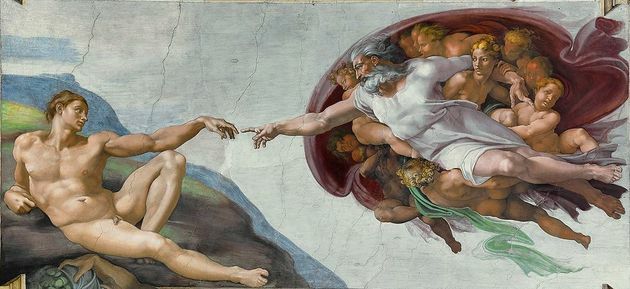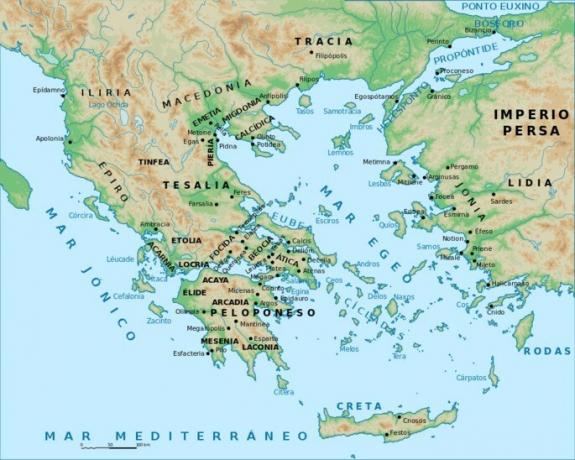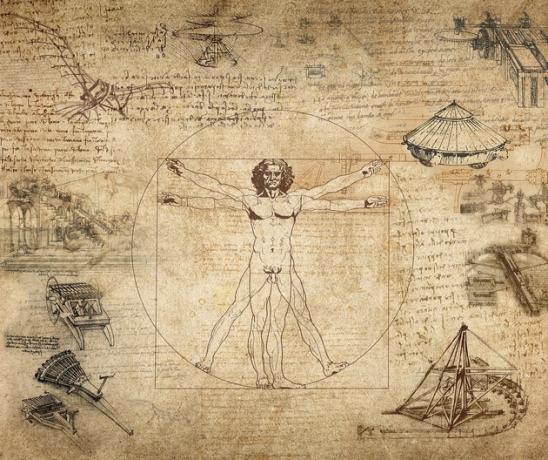Philosophy was born in ancient Greece, at the beginning of the sixth century BC. Ç. Thales of Miletus is recognized as the first philosopher, yet it was another philosopher, Pythagoras, who coined the term "philosophy", an amalgamation of the words "philos" (love and "sophia"(knowledge), which means "love of knowledge".
Since then, philosophy is the activity dedicated to understanding, identifying and communicating reality through logical-rational concepts. It arose from the gradual abandonment of the explanations given by mythology (demythification) and the search for secure knowledge.
From Mythic Consciousness to Philosophical Consciousness

Mythic consciousness was characterized by the traditional explanations found in mythological stories. THE Greek mythology, as it is a polytheistic belief, it is composed of a series of entities, including gods, titans and other beings that related to each other, gave rise to and gave meaning to the universe.
These explanations had a fanciful, fabulous character, and their stories were composed of many images, building a popular culture transmitted from an oral tradition. These stories were told by rhapsodic poets.
For a long time, these stories were the explanation of Greek culture and the origin of all things. There was no distinction between religion and other activities. All aspects of human life were directly related to the gods and other deities who ruled the universe.
Gradually, this mentality was changing. Some factors made some people in ancient Greece start to relativize this knowledge and think about new possibilities of explanation.
This relativization gives rise to the need to find ever better explanations for everything. Belief gives way to argumentation, to the ability to convince and give explanations based on reason, the logos.
O logos is identified as objective, clear and ordered speech. Thus, Greek thought was abandoning belief (mythical consciousness) to assume what "does meaning" which has a logic, which is capable of being explained by the human being (consciousness philosophical).
Historical Conditions for the Emergence of Philosophy

Often referred to as the "Greek miracle," the rise of philosophy did not depend on a miracle. A series of factors led to the relativization of thought, disbelief (demystification) and the search for better explanations about reality. Among these factors are:
1. Commerce, navigation and cultural diversity
Due to its construction and geographic location, Greek society became an important trade center and a maritime power.
This made the Greeks have contacts with other cultures. The contact with this diversity made them, from the disbelief and relativization of other cultures, to end up relativizing their own.
2. The rise of alphabetic writing
The alphabet ( "alpha" and
"beta", two first Greek letters) was an important technology of the time.
THE writing through ideograms and symbols it is anchored in ideas that are part of culture and the collective unconscious.
Alphabetical writing, on the other hand, requires a greater degree of abstraction as it is related to phonemes. It's realizing that words are made up of sounds that can be encoded and reproduced. Thus, they abandon the mythical aura present in the ideograms.
3. The emergence of currency
Currency requires some degree of abstraction from its users. Trading carried out through direct exchanges between products (example: chickens for wheat) requires very little degree of imagination.
Currency-mediated exchanges make the user have to realize that a quantity of products is equivalent to a specific quantity of currency.
4. The invention of the calendar
Another important factor for demystifying reality is the calendar. Its use, it is noticed, the regularity of some events of nature, such as the seasons of the year.
The organization generated by the perception of this regularity takes away from the gods the responsibility to control the climate, which becomes related to the ability of mathematicians and astronomers to make predictions based on calculations.
5. The emergence of public life (politics)
With the development of polis, there is an intensification of public life. More inhabitants share the same space (public) and, with this, their attention is turned to the organization of this space (specific activity of the polis, politics).
The interactions between people make the relationship with the gods and deities to be relegated to the background.
6. the rise of reason
The Greek population needed better explanations that were in accordance with its degree of abstraction and demystification.
Thus, the Greek citizen who, according to tradition, should not work (work was understood as a minor activity, responsibility of slaves and foreigners), devoted himself to leisure contemplative.
It contemplated nature and sought to establish relationships of causality (cause and effect, "what causes what?") and ordering.
Nature, previously understood as chaos, was now ordered by human reason.
The Birth of Philosophy
It is in this context that philosophy arises. The investigation of nature made philosophers produce knowledge. Initially, philosophy was a cosmology, a study of the cosmos (universe) based on reason (logos).
This perspective of thought contrasts with the previous one, which was understood as a cosmogony, an explanation of the cosmos based on the relationships that gave rise to it (gonos) things.
The same distinction occurs between theology (study of the gods) and theogony (stories about the birth of the gods).
To better understand this distinction between mythology and philosophy, check out the table below:
| Mythology | Philosophy |
|---|---|
| Belief (Myths) | Reason (Logos) |
| Cosmogony / Theogony | Cosmology / Theology |
| Fabulous and fanciful explanations | Rational and reasoned explanations |
| rhapsodes | philosophers |
The First Philosophers

The first philosophers, known as pre-Socratic philosophers, from the end of the 7th century BC. C., dedicated themselves to the investigation of nature (Physis). They sought to establish logical principles for the formation of the world.
Nature demystified (without the aid of mythical explanations) was the object of study. The main objective being to find the primordial element (arche) that would have given rise to everything that exists.
Anthropological Period and the Establishment of Philosophy

With the maturation of philosophical thought and the complexity of public life, the investigation of philosophers gradually abandoned questions related to nature and turned to activities human beings.
This new period of philosophy is called the Anthropological Period and its landmark is the philosopher Socrates (469 a. C.-399 a. Ç.). He is understood as the "father of philosophy". Even not being the first philosopher, Socrates was responsible for developing the so-called "philosophical attitude".
Socrates and, his disciple, Plato (ç. 428 a. C.-348 a. C.) were responsible for building the foundations of the search for knowledge that has influenced all Western thought to this day.
Then, Aristotle (384-322 a. C.), a disciple of Plato, developed a vast philosophical work. He was a teacher at Emperor Alexander the Great and responsible for the popularization of Greek thought, fulfilling the legacy of greek philosophy.
